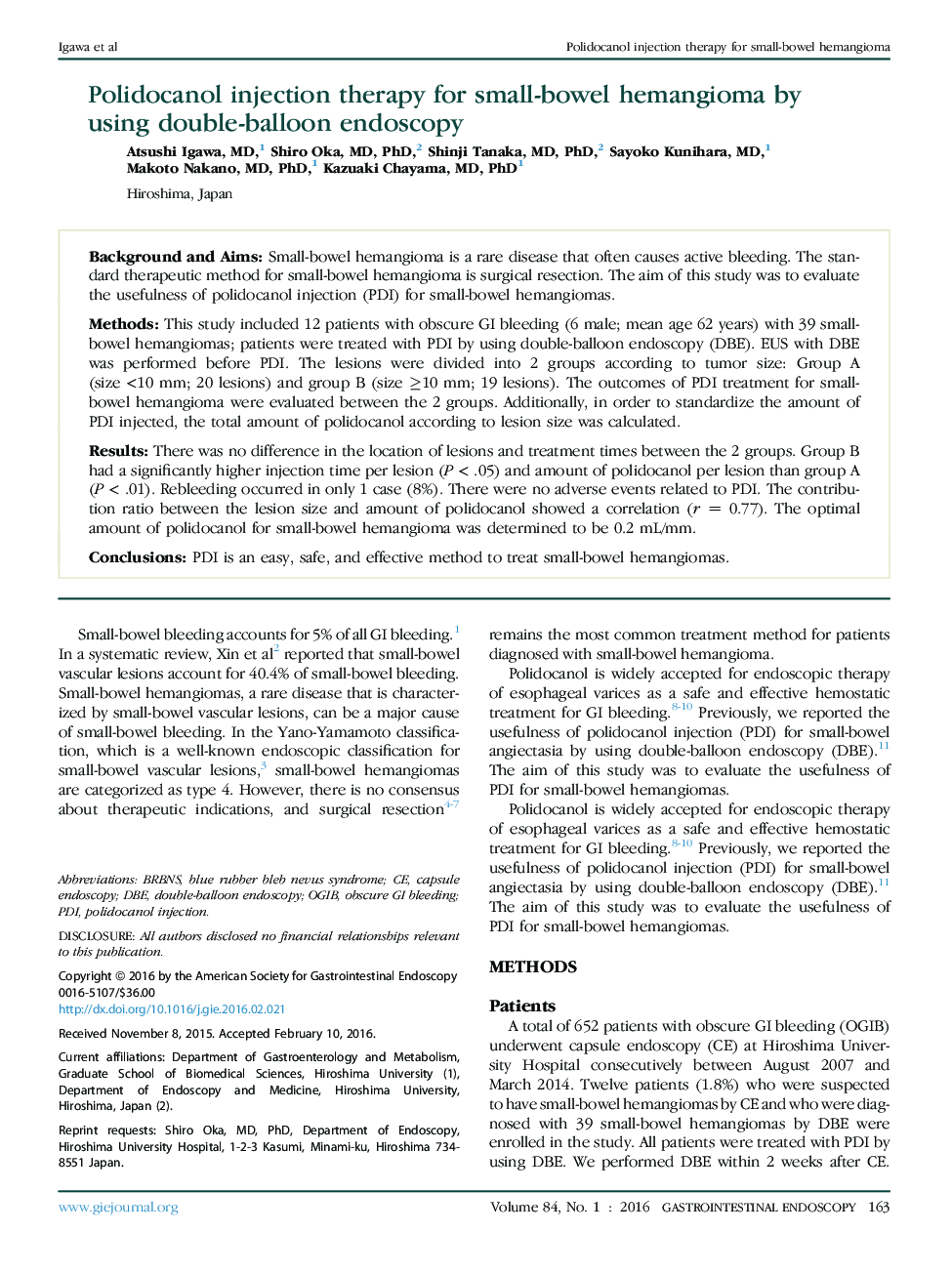| Article ID | Journal | Published Year | Pages | File Type |
|---|---|---|---|---|
| 6097521 | Gastrointestinal Endoscopy | 2016 | 5 Pages |
Background and AimsSmall-bowel hemangioma is a rare disease that often causes active bleeding. The standard therapeutic method for small-bowel hemangioma is surgical resection. The aim of this study was to evaluate the usefulness of polidocanol injection (PDI) for small-bowel hemangiomas.MethodsThis study included 12 patients with obscure GI bleeding (6 male; mean age 62 years) with 39 small-bowel hemangiomas; patients were treated with PDI by using double-balloon endoscopy (DBE). EUS with DBE was performed before PDI. The lesions were divided into 2 groups according to tumor size: Group A (size <10 mm; 20 lesions) and group B (size â¥10 mm; 19 lesions). The outcomes of PDI treatment for small-bowel hemangioma were evaluated between the 2 groups. Additionally, in order to standardize the amount of PDI injected, the total amount of polidocanol according to lesion size was calculated.ResultsThere was no difference in the location of lesions and treatment times between the 2 groups. Group B had a significantly higher injection time per lesion (P < .05) and amount of polidocanol per lesion than group A (P < .01). Rebleeding occurred in only 1 case (8%). There were no adverse events related to PDI. The contribution ratio between the lesion size and amount of polidocanol showed a correlation (r = 0.77). The optimal amount of polidocanol for small-bowel hemangioma was determined to be 0.2 mL/mm.ConclusionsPDI is an easy, safe, and effective method to treat small-bowel hemangiomas.
